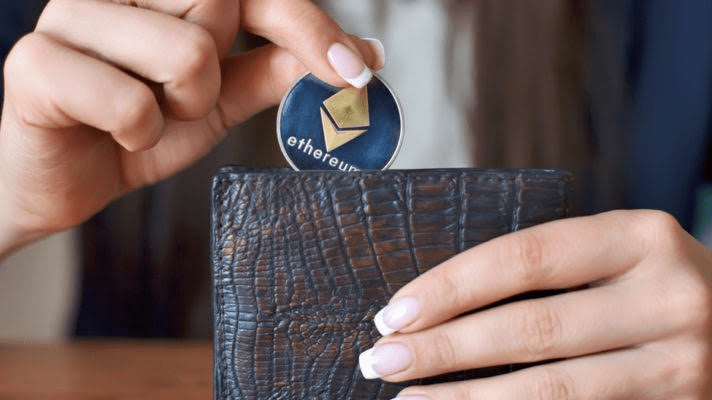Best Ethereum Wallet App 12 Powerful Options Reviewed

The Ethereum wallet app market has exploded with numerous options, making it challenging for crypto enthusiasts to choose the right solution for their digital asset management needs. As the second-largest cryptocurrency by market capitalization, Ethereum (ETH) requires secure, user-friendly storage solutions that can handle not just ETH tokens but also the vast ecosystem of ERC-20 tokens and decentralized applications (DApps).
A reliable Ethereum wallet serves as your gateway to the decentralized finance (DeFi) world, enabling you to store, send, receive, and interact with smart contracts safely. Whether you’re a beginner taking your first steps into cryptocurrency or an experienced trader managing a diverse portfolio, selecting the right crypto wallet is crucial for protecting your digital assets.
The landscape of Ethereum wallet apps encompasses various types, from mobile applications offering convenience and portability to hardware wallets providing maximum security through offline storage. Each solution comes with unique features, security protocols, and user interfaces designed to cater to different needs and technical expertise levels.
In this comprehensive review, we’ll explore 12 powerful Ethereum wallet options, examining their strengths, weaknesses, security features, and overall user experience. This guide will help you make an informed decision about which ETH wallet app best suits your specific requirements, whether you prioritize security, convenience, DeFi integration, or multi-currency support.
Understanding Ethereum Wallet Types
Hot Wallets vs. Cold Wallets
Hot wallets remain connected to the internet, offering convenience for frequent transactions and DApp interactions. These mobile crypto wallets excel in user experience and accessibility but face higher security risks due to their online nature. Popular Ethereum mobile wallets fall into this category, providing instant access to your funds and seamless integration with decentralized exchanges.
Cold wallets, conversely, store your private keys offline, significantly reducing exposure to online threats. Hardware wallets represent the gold standard for secure Ethereum storage, though they sacrifice some convenience for enhanced security. Understanding this fundamental distinction helps determine which type of Ethereum wallet app aligns with your risk tolerance and usage patterns.
Custodial vs. Non-Custodial Solutions
Non-custodial wallets give you complete control over your private keys, embodying the “not your keys, not your crypto” principle. These decentralized wallet apps ensure that only you can access your funds, but they also place the responsibility for security and backup entirely on your shoulders.
Custodial wallets, managed by third parties, handle key management on your behalf. While this reduces the technical burden, it requires trusting the service provider with your assets. Most serious crypto users prefer non-custodial Ethereum wallets for their enhanced security and alignment with cryptocurrency’s decentralized philosophy.
Top 12 Ethereum Wallet Apps Reviewed
1. MetaMask – The DeFi Gateway
MetaMask stands as the most popular Ethereum wallet app, serving over 30 million users worldwide. This browser extension wallet seamlessly integrates with thousands of DApps, making it the preferred choice for DeFi enthusiasts and NFT collectors.
Key Features:
- Browser extension and mobile app versions
- Built-in DApp browser
- Hardware wallet integration
- Cross-chain support for multiple networks
- Advanced transaction customization
MetaMask’s strength lies in its extensive ecosystem compatibility and user-friendly interface. The wallet app supports token swaps, staking, and direct interaction with smart contracts. However, as a hot wallet, it requires careful security practices and regular backups of your seed phrase.
2. Ledger Live – Premium Hardware Security
Ledger Live represents the pinnacle of secure crypto storage, combining hardware wallet security with intuitive software management. This cold storage solution protects your Ethereum assets through offline key generation and transaction signing.
Security Advantages:
- Military-grade security chip
- PIN protection and recovery phrase backup
- Offline transaction signing
- Support for 5,500+ cryptocurrencies
- Regular security audits
While Ledger devices require an initial investment, they provide unmatched security for large ETH holdings. The Ledger Live app offers portfolio management, staking services, and direct crypto purchases, making it a comprehensive solution for serious investors.
3. Trust Wallet – Mobile-First Approach
Trust Wallet, acquired by Binance, focuses on delivering an exceptional mobile crypto wallet experience. This multi-currency wallet supports over 4.5 million cryptocurrencies and tokens across 65+ blockchains.
Notable Features:
- Built-in Web3 browser
- Staking rewards for multiple cryptocurrencies
- NFT storage and marketplace integration
- WalletConnect protocol support
- Decentralized exchange integration
Trust Wallet excels in mobile usability and cross-chain functionality. The app’s intuitive design makes it ideal for newcomers to the Ethereum ecosystem, while advanced features satisfy experienced users’ needs.
4. Coinbase Wallet – Institutional Grade
Coinbase Wallet leverages the exchange giant’s security expertise to deliver a robust self-custody wallet. Unlike the main Coinbase platform, this non-custodial wallet ensures you maintain complete control over your private keys.
Distinctive Elements:
- Biometric authentication
- Cloud backup with encryption
- Institutional-grade security measures
- Direct fiat on-ramp integration
- Advanced portfolio analytics
The wallet’s integration with Coinbase’s ecosystem provides seamless fiat conversion and professional-grade security features. However, some users may prefer more decentralized alternatives.
5. Exodus – Beautiful Design Meets Functionality
Exodus combines aesthetic appeal with powerful functionality, creating one of the most visually striking cryptocurrency wallets available. The platform supports over 260 cryptocurrencies and offers built-in exchange services.
Design Excellence:
- Intuitive portfolio visualization
- Built-in cryptocurrency exchange
- 24/7 customer support
- Hardware wallet integration
- Cross-platform synchronization
Exodus prioritizes user experience without compromising security. The wallet’s design makes complex crypto operations accessible to beginners while providing advanced features for experienced users.
6. MyEtherWallet (MEW) – Ethereum Native

MyEtherWallet holds the distinction of being one of the original Ethereum wallet apps, designed specifically for the Ethereum ecosystem. This web-based wallet offers comprehensive ETH management capabilities with optional hardware wallet integration.
Ethereum-Specific Features:
- Direct smart contract interaction
- Custom token support
- ENS domain integration
- MEW Connect mobile app
- Advanced transaction controls
MEW’s Ethereum-native approach provides deep integration with the network’s features. The platform’s longevity and reputation make it a trusted choice for Ethereum enthusiasts.
7. Atomic Wallet – Decentralized Exchange Integration
Atomic Wallet distinguishes itself through built-in atomic swap technology and decentralized exchange functionality. This multi-asset wallet supports over 500 cryptocurrencies with no registration required.
Atomic Swap Technology:
- Peer-to-peer cryptocurrency exchanges
- No third-party intermediaries
- Built-in staking for 10+ cryptocurrencies
- 24/7 live chat support
- Regular security updates
The wallet’s atomic swap feature enables trustless cryptocurrency exchanges, aligning with decentralized finance principles while maintaining user control over private keys.
8. Argent – Smart Contract Powered
Argent revolutionizes Ethereum wallet security through smart contract technology, eliminating traditional seed phrases in favor of social recovery mechanisms. This innovative approach makes the wallet particularly appealing to newcomers.
Smart Contract Innovation:
- Seedless security model
- Social recovery system
- Built-in DeFi integrations
- Gas-free transactions (subsidized)
- Guardians-based account recovery
Argent’s unique security model reduces the risk of lost funds while maintaining non-custodial principles. The wallet’s DeFi integrations provide seamless access to lending, borrowing, and yield farming opportunities.
9. Rainbow – NFT-Focused Excellence
Rainbow targets the growing NFT market with specialized features for digital collectible management. This mobile-first wallet combines a beautiful design with comprehensive NFT support.
NFT-Centric Features:
- Visual NFT gallery
- Rarity tracking and analytics
- Social NFT sharing
- Optimized transaction fees
- Cross-chain NFT support
Rainbow’s focus on NFTs makes it ideal for digital art collectors and creators. The wallet’s social features enable community engagement around NFT collections.
10. Frame – Desktop Power User Solution
Frame caters to desktop users requiring advanced Ethereum wallet functionality. This system-level wallet provides deep integration with the operating system while maintaining security through isolated processes.
Advanced Desktop Features:
- System-level integration
- Hardware wallet support
- Advanced permission controls
- Multi-account management
- Developer-friendly APIs
Frame appeals to power users and developers who need comprehensive desktop crypto wallet functionality with professional-grade security features.
11. Gnosis Safe – Multi-Signature Security
Gnosis Safe implements multi-signature technology for enhanced security, particularly valuable for organizations and high-net-worth individuals managing substantial Ethereum holdings.
Multi-Signature Benefits:
- Configurable signature requirements
- Transaction approval workflows
- Team-based asset management
- Integration with hardware wallets
- Comprehensive audit trails
The platform’s multi-signature approach significantly reduces single points of failure, making it ideal for treasury management and collaborative fund control.
12. Trezor Suite – Hardware Wallet Excellence
Trezor Suite combines the security of Trezor hardware wallets with comprehensive software management. This cold storage solution has protected cryptocurrency users for over a decade.
Hardware Security Features:
- Open-source hardware and software
- PIN and passphrase protection
- Recovery seed backup
- Advanced privacy features
- Regular security updates
Trezor’s commitment to open-source development and security transparency makes it a preferred choice for security-conscious crypto investors.
Security Considerations for Ethereum Wallets

Private Key Management
Private key security forms the foundation of cryptocurrency safety. Non-custodial wallets require users to securely store and back up their private keys or seed phrases. Never share these credentials or store them digitally without proper encryption.
Two-Factor Authentication
Many Ethereum wallet apps support two-factor authentication (2FA), adding an extra security layer to wallet access. Enable 2FA whenever possible, preferably using authenticator apps rather than SMS-based systems.
Regular Security Updates
Keep your crypto wallet app updated to the latest version to benefit from security patches and new features. Developers regularly address vulnerabilities and improve security measures through updates.
Also Read: Best Ethereum Transaction Tracker Tools 2025 Monitor ETH Transactions in Real Time
Choosing the Right Ethereum Wallet App
Assess Your Needs
Consider your primary use case when selecting an Ethereum wallet. Day traders may prioritize speed and exchange integration, while long-term investors might focus on security and offline storage capabilities.
Evaluate Security vs. Convenience
Balance security requirements with usability needs. Hardware wallets offer maximum security but less convenience, while mobile wallets provide instant access but require careful security practices.
Consider Multi-Currency Support
If you hold various cryptocurrencies beyond Ethereum, choose a multi-asset wallet that supports your entire portfolio. This simplifies management and reduces the number of applications needed.
Conclusion
Selecting the best Ethereum wallet app depends on your specific needs, technical expertise, and security requirements. MetaMask remains the top choice for DeFi interaction, while Ledger and Trezor excel in security for large holdings. Trust Wallet and Coinbase Wallet offer excellent mobile experiences, and specialized options like Argent and Rainbow cater to specific use cases.
Remember that no single crypto wallet suits every situation. Many users employ multiple wallets for different purposes – a hardware wallet for long-term storage, a mobile wallet for daily transactions, and a web wallet for DeFi interactions. The key is understanding each wallet’s strengths and using them appropriately within your overall cryptocurrency security strategy.




